China Books & Literature
Best 30 Books to Understand Modern China (Recommended by What’s on Weibo)
The best books to understand modern China – from society and history to gender and (online) language.
Published
7 years agoon
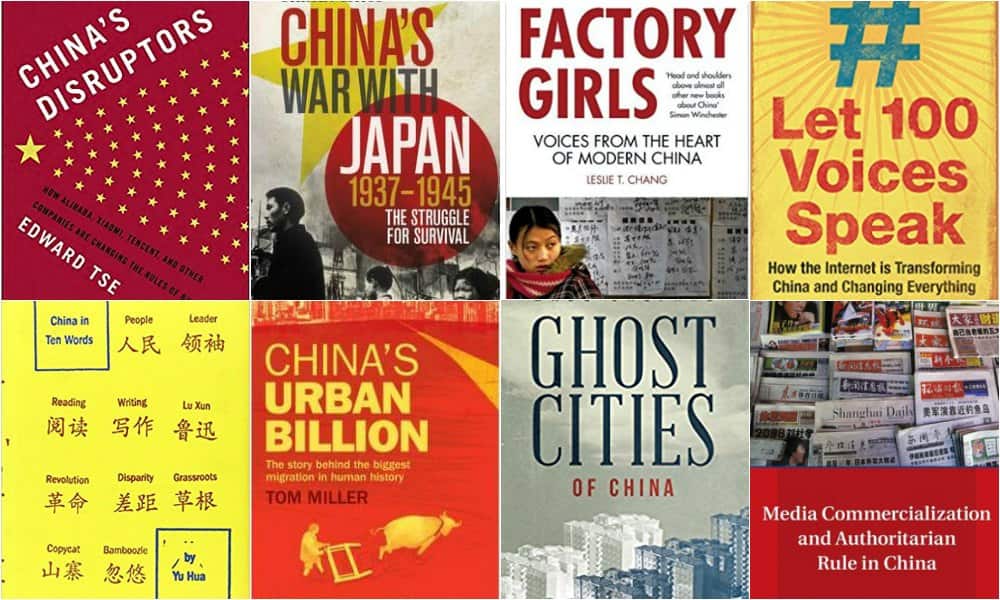
A list of the best English-language books on Chinese history, online environment, modern Chinese culture and more, recommended by What’s on Weibo.
In the What’s on Weibo inbox, we often receive messages from readers who are looking for recommendations of what books to read on various China-related subjects.
It led to a compilation of this list on our resource page of recommendations that readers of What’s on Weibo may also appreciate.
This list was compiled based on own preferences and that of many readers whom we asked about their favorite sources within this category. If you think certain books are not here that should be here within these categories, please let us know in the comments below and we might compile a second list in the future.
There are many great books out there on modern China, and a lot of them are written in Chinese, Japanese, French, Spanish, Dutch, and many other languages – but for the scope of this particular list, we have chosen just to focus on the books that have come out in the English language.
ON CHINESE MODERN HISTORY
● Forgotten Ally: China’s World War II, 1937-1945
by Rana Mitter, 2014
Rana Mitter is a British historian and political scientist who specializes in China’s history, and we’re a huge fan of his refreshing perspectives and selection of topics. In Forgotten Ally, Mitter notes that “In the West, (..) the living, breathing legacy of China’s wartime experience continues to be poorly understood.” Mitter’s focus is essential because a proper understanding of China’s wartime experience is also key to understanding the development of modern China. Interestingly, outside of the USA, this same book is sold under a different title: China’s War with Japan, 1937-45: The Struggle for Survival. This book became an Economist Book of the Year and a Financial Times Book of the Year.
Get on Amazon: Forgotten Ally: China’s World War II, 1937-1945
Get on iTunes: Forgotten Ally – Rana Mitter
Get on Bookdepository: Forgotten Ally – Rana Mitter
● Mao’s Great Famine – The History of China’s Most Devastating Catastrophe, 1958-62
by Frank Dikötter, 2017 (2011)
It is estimated that more than 45 million lives were claimed during the Great Leap Forward (1958-1961) – a project that was meant to make China a greater nation than the United Kingdom within a time frame of 15 years. It is a dark and important period in the history of modern China that is written about with great detail in this work by Frank Dikötter, in which he explains how such an ambitious plan could have turned out so catastrophic. Dikötter’s research is impressive and not to be missed for anyone searching for deeper insights into China’s modern history.
Get on Amazon: Mao’s Great Famine: The History of China’s Most Devastating Catastrophe, 1958-62
Get on iTunes: Mao’s Great Famine – Frank Dikötter
Get on Book Depository: Mao’s Great Famine
Audiobook: Mao’s Great Famine
● Modern China: A Very Short Introduction
by Rana Mitter, 2008
Oxford University Press has a series of short introductions to over 200 different subjects, from Globalization to Foucault and from Shakespeare to Nothing. Well-written, compact, light-weight, and affordable, these books are the perfect starting point to any topic – and this edition is a great and concise introduction to Modern China; especially since it’s been written by the acclaimed Rana Mitter. (BTW the Introduction to Modern Japan by the excellent Chris Goto-Jones is also to be recommended.)
Get on Amazon: Modern China: A Very Short Introduction (Very Short Introductions)
Get on iTunes: Modern China: A Very Short Introduction
Audiobook: Modern China: A Very Short Introduction (Unabridged) – Rana Mitter
Get on Book Depository: Modern China: A Very Short Introduction
● Oracle Bones: A Journey Between China’s Past and Present
This is one of the works many of our readers recommend as a book that really helps to understand China. This is not a classical work on Chinese history – we were doubting whether or not to put in the ‘Chinese society’ section; it belongs in both. Through personal and historical narratives, Peter Hessler moves between present and history in this work, telling stories that go from the ancient oracle bones to modern-day urbanization.
Get on Amazon: Oracle Bones: A Journey Between China’s Past and Present
Get on iTunes: Oracle Bones: A Journey Between China’s Past and Present
Audiobook: Oracle Bones: A Journey Through Time in China (Unabridged) – Peter Hessler
● The Columbia Guide to Modern Chinese History
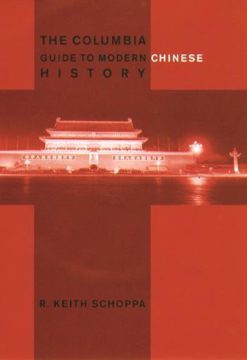
by R. Keith Schoppa, 2000
If the Columbia Guide to Modern Chinese History is not on your bookshelf yet, it should be. It is the to-go book on China’s modern history that is recommended to every student when first getting into the modern history of China. Schoppa has a very clear and no-nonsense approach to Chinese history, explaining the importance of crucial events over the past century and how they came to form modern China.
Get on Amazon:The Columbia Guide to Modern Chinese History
Get on Book Depository: The Columbia Guide to Modern Chinese History
by Jonathan Spence, 1991
Although this work, more elaborate than the aforementioned one by Schoppa, is one of the recommended essential works on Chinese modern history, we’d also recommend to consider Jonathan Spence’s Gate of Heavenly Peace as a book of choice for an introduction to modern China.
Get on Amazon: The Search for Modern China
Audiobook: The Search for Modern China (Unabridged) – Jonathan D. Spence
Get on Book Depository: The Search for Modern China
● Wild Swans: Three Daughters of China
by Jung Chang, 2003 (1991)
Practically every garage sale or thrift shop nowadays has a copy of Wild Swans lying around since its immense success in the 1990s. The book is an account of the tumultuous Chinese 20th century from the perspective of three generations of women. It is a personal account of Jung Chang, the author, but offers a glimpse into an incredible time in the history of China in a personal and captivating way that more formal history books could never do. An absolute recommendation for anyone who wants to know more about how the Cultural Revolution and the period before and after affected Chinese women, families, and society at large.
Get on Amazon: Wild Swans: Three Daughters of China
Get on iTunes: Wild Swans – Jung Chang
Get on Book Depository: Wild Swans: Three Daughters of China
Audiobook: Wild Swans
ON CHINESE SOCIETY & POPULAR CULTURE
● The Souls of China: The Return of Religion After Mao
by Ian Johnson, 2017
While many books on the transformation of Chinese modern society focus on the mushrooming of new companies, the rapid urbanization of China, or its staggering consumerism, Ian Johnson takes on an entirely different, yet so important, topic in this work; religion and spirituality in the post-Mao era. He does so in a way that sometimes reads like a novel, vividly writing about people’s attitudes on religion and how some have made it their life’s work to safeguard it. One person interviewed by Johnson for this book said: “We thought we were unhappy because we were poor. But now a lot of us aren’t poor anymore, and yet we’re still unhappy. We realize there’s something missing and that’s a spiritual life.” This work is quite essential for anyone who wants to understand more about what happened to China’s religious life after the end of the Cultural Revolution – it gives crucial perspectives on it and creates an understanding among readers that Chinese religions may not be what you thought they were.
Get on Amazon: The Souls of China: The Return of Religion After Mao
Get on iTunes: The Souls of China – Ian Johnson
Get on BookDepository: Souls of China
● Ghost Cities of China: The Story of Cities without People in the World’s Most Populated Country
by Wade Shepard, 2015
Brand new skyscrapers and shopping malls, but silent streets and empty apartments. China’s so-called ‘ghost cities’ are a hot topic in the media nowadays. The city of Ordos, Inner Mongolia, is one of the most famous. In 2015, author Wade Shepard published this book about China’s ghost cities. Shepard’s account is refreshing in how he argues that the term ‘ghost cities’ is actually not that appropriate because rather than places that once lived and then died, these places are the future cities built by world luxury developers who are working on constructing new urban utopias all over China.
Get on Amazon: Ghost Cities of China: The Story of Cities without People in the World’s Most Populated Country (Asian Arguments)
Get on iTunes: Ghost Cities of China
Get on BookDepository: Ghost Cities of China
● Age of Ambition: Chasing Fortune, Truth, and Faith in the New China
by Evan Osnos, 2014
Like Peter Hessler, whose work is also in this list, Evan Osnos is one of the names that recurringly comes up when asking people about their favorite books to understand China. In Age of Ambition, Osnos focuses on ‘aspiration’ as being one of the most important ‘fevers’ that characterizes the transformation of China – a country where, besides this force of aspiration, there is also that of a strong authoritarian rule. Through the themes of ‘fortune’, ‘truth’, and ‘faith’ – all of which were not accessible to China’s older generations due to poverty and the political climate – Osnos captures the country’s current situation through the stories of men and women who took the risks to change their lives.
Get on Amazon: Age of Ambition: Chasing Fortune, Truth, and Faith in the New China
Get on iTunes: Age of Ambition: Chasing Fortune, Truth, and Faith in the New China
Get on BookDepository: Age of Ambition
● China’s Urban Billion: The Story behind the Biggest Migration in Human History
Tom Miller, 2012
The phrase “the biggest human migration the world” has almost become a cliche now when media talk about China’s urbanization. But in this work, Miller goes behind that phrase to explain China’s transformation from poor country to economic superpower, and gives insights into how China’s so-called ‘urbanization’ is actually “bogus”, because many of those living in the cities have no access to urban services and facilities due to China’s hukou household registration system. The situation of China’s ‘floating population’ is essential to understand; it plays a huge role in the everyday topics being discussed on Chinese social media, too.
Get on Amazon: China’s Urban Billion: The Story behind the Biggest Migration in Human History (Asian Arguments)
● Visual Political Communication in Popular Chinese Television Series
by Florian Schneider, 2012
Florian Schneider, lecturer at Leiden University, is an expert in taking popular phenomena or events in China and analyzing the greater discourse behind them. In this work, that was awarded with the 2014 EastAsiaNet Award, Schneider focuses on Chinese TV drama series; with China being one of the largest producer and consumer of TV drama in the world, this form of entertainment plays a significant role in the popular culture of China and is a powerful tool to guide public opinion. Schneider gives a nuanced overview of the complicated processes involved in producing TV dramas in China, examining important and highly interesting questions relating to the major players in the TV drama market and how they influence drama discourses, the political-ideological frameworks of television series, and the role of TV entertainment in regulating Chinese society. There’s just one downside to this publication – which is that it is not exactly cheap. However, it is very worthwhile for any student of China Studies or anyone interested in popular culture and (media) politics in China, so if you can’t purchase yourself you could ask your library to do so.
Get on Amazon: Visual Political Communication in Popular Chinese Television Series (China Studies)
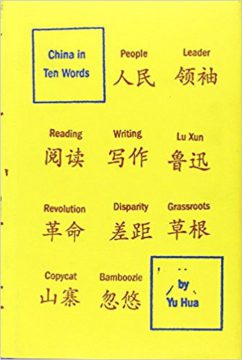
by Yu Hua, 2011 (translated from the Chinese by Allan H. Barr)
“If I were to try to attend each and every aspect of modern China, there would be no end to this endeavour, and the book would go on longer than The Thousand and One Nights,” Yu Hua writes: “So I limit myself to just ten words.” By taking on ten different words and concepts, such as People (人民), Leader (领袖), or Revolution (革命), Yu takes readers through the social complexities and contrasts of modern China – its politics, history, society, and culture.
Get on Amazon: China in Ten Words
Get on iTunes: China in Ten Words
Audiobook: China in Ten Words (Unabridged)
edited by Louise Edwards, Elaine Jeffreys, 2010
China has a booming celebrity culture, which plays an enormous role in the social media environment and popular culture in general. This is also the reason why this book in this list; it is the first book-length exploration of celebrities in contemporary China. In a collection of academic studies, this book goes explores a wide range of ‘celebrities’ in China, such as literary celebrities or online celebrities (who remembers Furong Jiejie, the first social media superstar?!).
Get on Amazon: Celebrity in China
Get on Bookdepository: Celebrity in China
● China’s New Confucianism: Politics and Everyday Life in a Changing Society
by Daniel Bell, 2010 (2008)
What is it like to be a Westerner teaching political philosophy in an officially Marxist state? Why do Chinese sex workers sing karaoke with their customers? And why do some Communist Party cadres get promoted if they care for their elderly parents? These are some of the questions addressed in this book by Daniel Bell, drawing on personal experiences to explain how Chinese society is transforming so quickly while still sticking to old traditions – of which Confucianism is one of the most important ones.
Get on Amazon: China’s New Confucianism
Get on iTunes: China’s New Confucianism
Get on Book Depository: China’s New Confucianism
● Pop Culture China! Media, Arts, and Lifestyle
by Kevin Latham, 2007
Pop culture in China changes faster than the chef’s special of the day, but nevertheless, this work is still very relevant; it might miss some of the more contemporary forms of popular culture, but goes deep into the roots of pop culture in China back to the early days of the 20th century, the Cultural Revolution, and the early years of radio and television. Anyone interested in pop culture in China won’t be able to understand its current environment without understanding where it came from – and this book provides a full overview of that environment from 1919 to 2007.
Get on Amazon: Pop Culture China!: Media, Arts, and Lifestyle
Get on Book Depository: Pop Culture China!: Media, Arts, and Lifestyle
ON CHINESE (ONLINE) MEDIA
● The Internet, Social Media, and a Changing China
Edited by Jacques deLisle, Avery Goldstein, and Guobin Yang, 2016
It is somewhat difficult to recommend any book on China’s online developments; the changes are happening so fast that any book on the topic is bound to be outdated from the moment it is published. This academic publication, however, is an insightful work that consists of a total of nine chapters in which the authors make sense of China’s online environment. Both Chapter 2, in which Marina Svensson explains the idea of connectivity and Weibo’s ‘micro-community,’ and Chapter 2, in which Zhengshi Shi and Guobin Yang write about new media empowerment in China, are especially relevant in this publication.
Get on Amazon: The Internet, Social Media, and a Changing China
Get on Book Depository: The Internet, Social Media, and a Changing China
● Micro-blogging Memories: Weibo and Collective Remembering in Contemporary China

by Eileen Le Han, 1st ed, 2016
In this 2016 publication, Eileen Le Han looks at the development of microblogging platform Sina Weibo from the perspective of collective memory. The author notes that there is a strong desire to remember what is happening and an anxiety over forgetting on this platform. What is remembered for what reasons, and what is forgotten? This book gives a profound insight into how collective memory is made on Weibo, and the role of Chinese media and journalism in this process.
Get on Amazon:Micro-blogging Memories: Weibo and Collective Remembering in Contemporary China
Get on iTunes:Micro-blogging Memories: Weibo and Collective Remembering in Contemporary China
Edited by Stefania Travagnin, 2016
Okay, okay, there is some bias in recommending this book – as editor-in-chief of What’s on Weibo, I personally wrote one of the chapters in this book about the Confucian influences on the portrayal of women in China’s television drama (which actually all started with one of these very first articles ever published on What’s on Weibo). But the 15 different chapters in this book each give unique insights into the world of media and religion in China, such as that on Buddhism online or digital Islam, which will be helpful and refreshing to anyone interested in modern China and how it deals with religion and the media.
Get on Amazon: Religion and Media in China
● Internet Literature in China
By Michel Hockx, 2015
Chinese internet literature, wangluo wenxue (网络文学), is a unique and fascinating part of China’s online culture, and Hockx is the first one to provide such a comprehensive and well-written survey in English of this phenomenon. Not only does he describe and explain the (short) history of Internet literature in China, especially focusing on the 2000-2013 period, he also provides examples of the innovative nature of online literature and analyzes how it pushes the boundaries of China’s highly controlled publishing system.
Get on Amazon: Internet Literature in China
Get on iTunes: Internet Literature in China
Get on Bookdepository: Internet Literature in China
● Let 100 Voices Speak: How the Internet Is Transforming China and Changing Everything
By Liz Carter, 2015
Besides that Carter is a really fun and interesting person to follow on Twitter (@withoutdoing), she is also the author of this 2015 book that sheds light on China’s internet, censorship, government, and society in the Weibo era – with a focus on those years in which social media really flourished in mainland China.
Get on Amazon: Let 100 Voices Speak: How the Internet Is Transforming China and Changing Everything
Get on iTunes: Let 100 Voices Speak : How the Internet is Transforming China and Changing Everything
● Media Commercialization and Authoritarian Rule in China
by Daniela Stockman, 2014 (2012)
Daniela Stockman is a Professor of Digital Politics and Media at the Hertie School of Governance in Berlin. In this book, she offers an in-depth introduction and exploration of the various market forces in Chinese media, going deeper into the existing polarisation in discourses on media marketizing in China – which is that they either emphasize growing liberalization or growing control. She argues that in the case of the PRC, market-based media promote regime stability rather than destabilizing authoritarianism. This is not a light read but a very well-researched and elucidating work on China’s marketized media relevant to anyone studying Media or China’s media environment in specific.
Get on Amazon: Media Commercialization and Authoritarian Rule in China
Get on BookDepository: Media Commercialization and Authoritarian Rule in China
ON DIGITAL DEVELOPMENTS & TECH IN CHINA
● The House That Jack Ma Built
by Duncan Clark, 2016
If you ever have been to a Chinese bookstore, you’ll know that there’s always an entire shelf or section dedication to Alibaba founder Jack Ma, the hero of post-socialist China. Hundreds of books have been written about him and his company. Because he plays such an important role in the business (and celebrity) culture of China today, we had to include at least one book about Ma in this list. According to Dutch China tech blogger Ed Sander, this book is worth reading for those who want to know more about the business side of how Ma created his empire. The initial chapters also focus on Jack Ma as a person, but generally dives deeper into the power of Alibaba and how the company was built, also creating more understanding on the scale and speed of China’s economic transformation in general.
Get on Amazon: Alibaba: The House That Jack Ma Built
iTunes: Alibaba: The House That Jack Ma Built
Get on Book Depository: The House that Jack Ma Built
● Little Rice : Smartphones, Xiaomi, and the Chinese Dream

By Clay Shirky, 2015
Little Rice is an easy-to-read case study that tells the story of the rise of one of the world’s largest mobile manufacturers – yet its name is still unknown to those less familiar with Chinese brand names: Xiaomi (literally meaning: ‘little rice’). So many books have already been written in the English language about the success of companies such as Apple or Samsung; Xiaomi does deserve more attention, and this account of the rise of this tech giant also shines a light on Chinese political power and how Chinese tech brands are shaping present-day economy in China.
Get on Amazon: Little Rice: Smartphones, Xiaomi, and the Chinese Dream
Get on iTunes: Little Rice: Smartphones, Xiaomi, and the Chinese Dream
Book Depository: Little Rice : Smartphones, Xiaomi, and the Chinese Dream
by Edward Tse, 2015
Tse’s book on some of China’s biggest and most relevant companies has become a very popular one within its category over the past few years. Tse does not just provide an oversight of the companies that are really changing the Chinese market and are impacting the world, but tells the story behind them and their motivations, with a focus on business strategies and China’s economic environment.
Get on Amazon: China’s Disruptors: How Alibaba, Xiaomi, Tencent, and Other Companies are Changing the Rules of Business
Get on iTunes: China’s Disruptors – Edward Tse
ON SEX AND GENDER
● Leftover in China: The Women Shaping the World’s Next Superpower
by Roseann Lake, 2018
What’s on Weibo already featured an article on Leftover in China: The Women Shaping the World’s Next Superpower and the author when it just came out earlier this year. Lake brings a deeply insightful and captivating account of China’s so-called ‘leftover women’ – the unmarried females who are shaping the future of the PRC. She does so in a playful way, telling the stories of China’s young, single females through the various women she has encountered during the years of living and working in China. For those familiar with the controversy about this book when it just came out with regards to Leftover Women by Leta Hong Fincher (also in this list), we recommend reading both books so readers can form their own opinion based on the texts at hand.
Get on Amazon: Leftover in China: The Women Shaping the World’s Next Superpower
Get on iTunes: Leftover in China: The Women Shaping the World’s Next Superpower
Get on Bookdepository: Leftover in China: The Women Shaping the World’s Next Superpower
Audiobook: Leftover in China: The Women Shaping the World’s Next Superpower
● Leftover Women: The Resurgence of Gender Inequality in China
by Leta Hong Fincher, 2014
Fincher’s book on Leftover Women is a refreshing work within the topic of China and gender, which argues that the labeling of women as being “leftover” is part of a state-sponsored media campaign that has created a greater disparity between men and women in China today – contrary to a popular assumption that women have benefited from the market reforms in post-socialist China. Fincher explores and explains the challenges women in China face when it comes to issues such as real estate, economic well-being, and gender inequality within marriage. In doing so, this book has become an important work for anyone studying gender relations in China today.
Get on Amazon: Leftover Women: The Resurgence of Gender Inequality in China
Get on iTunes: Leftover Women – Leta Hong Fincher
Get on Bookdepository: Leftover Women: The Resurgence of Gender Inequality in China
● Behind the Red Door: Sex in China
by Richard Burger, 2012
Burger, who once ran Peking Duck, one of the first English-language blogs on China, offers a colorful and different perspective on Chinese culture and society through the lens of how it deals with sex. As the author points out, there are some dramatic contradictions when it comes to sex in China; on the one hand, society seems to be very liberal on sexuality, on the other hand, it is extremely repressed. Burger discusses a variety of topics, from marriage, views on premarital sex and virginity to prostitution and homosexuality.
Get on Amazon: Behind the Red Door: Sex in China
Get on iTunes: Behind the Red Door
Get on Book Depository: Behind the Red Door
● Factory Girls: Voices from the Heart of Modern China
by Leslie T. Chang, 2010 (2008)
Chang’s work has become a classic within its field, not just because of the highly relevant topic of this book, but also because of the captive narrative voice of the author. With the book being divided into two parts of The City and The Village, Chang describes how the economic rise of China has transformed the lives of many women, who have come from the countryside to spend days on end working in one of China’s many factories. This book focuses on the factory life of various women in Dongguan, southern China, and the hardships and hierarchy they face in everyday factory life.
Get on Amazon: Factory Girls: Voices from the Heart of Modern China
Get on iTunes: Factory Girls: Voices from the Heart of Modern China
Get on Bookdepository: Factory Girls: Voices from the Heart of Modern China
ON (ONLINE) CHINESE LANGUAGE
● A Billion Voices: China’s Search for a Common Language
by David Moser, 2017
Besides the fact that Moser’s writing style makes this a delight to read, A Billion Voices is just a work that any serious student of Chinese language should read as it provides great insights in how putonghua or standard Chinese came to be the common language of the PRC – even if approximately one third of the population does not even speak it. With so many languages and dialects alive in China today, Moser provides an essential and accessible linguistic history of China.
Get on Amazon: A Billion Voices: China’s Search for a Common Language
Get on iTunes: A Billion Voices: China’s Search for a Common Language
Get on Bookdepository: A Billion Voices: China’s Search for a Common Language
● (Bonus Mention -#31-) China Online: Netspeak and Wordplay Used by over 700 Million Chinese Internet Users
by Véronique Michel, 2015
As an extra mention on this list, for a fun and light work – China Online is a concise book by translator and multilingual netizen Véronique Michel, that offers an exploration into China’s rapidly changing society and its flourishing Internet environment, where new expressions emerge every day. Although any book on a topic such as this will inescapably be outdated from the moment it is published, Michels has nevertheless created an informative and entertaining introduction to China’s online language that will still be relevant as a reference to the popular expressions that once were (and some still are) – although it’s just a short and really light read, it does help to understand the environment and the ‘feel’ of this online culture where new Chinese expressions come from.
On Amazon: China Online
On iTunes: China Online
On Bookdepository: China Online
By Manya Koetse
Follow @whatsonweibo
Spotted a mistake or want to add something? Please let us know in comments below or email us.

Directly support Manya Koetse. By supporting this author you make future articles possible and help the maintenance and independence of this site. Donate directly through Paypal here. Also check out the What’s on Weibo donations page for donations through creditcard & WeChat and for more information.
©2018 Whatsonweibo. All rights reserved. Do not reproduce our content without permission – you can contact us at info@whatsonweibo.com.
Manya is the founder and editor-in-chief of What's on Weibo, offering independent analysis of social trends, online media, and digital culture in China for over a decade. Subscribe to gain access to content, including the Weibo Watch newsletter, which provides deeper insights into the China trends that matter. More about Manya at manyakoetse.com or follow on X.

China Arts & Entertainment
Chiung Yao’s Suicide Farewell Letter: An English Translation
Published
7 months agoon
December 7, 2024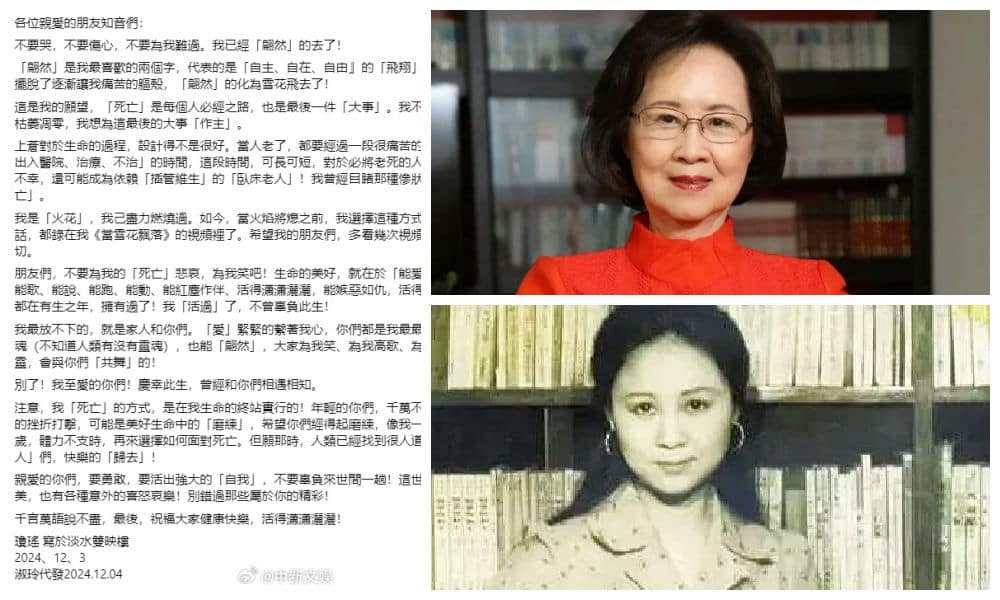
Chinese netizens mourned the passing of Taiwanese writer Chiung Yao (琼瑶) this week. Chiung Yao, one of China’s most beloved romance novelists, passed away at the age of 86.
Among her many works, Chiung Yao is cherished by many netizens in mainland China as part of their collective memories from the 1980s and 1990s. Some of the most iconic Chinese dramas, such as My Fair Princess (also: Return of the Pearl Princess, 還珠格格), were written by Chiung Yao.
On December 4, she was found on her sofa at home, leaving behind a suicide note. The cause of death was determined to be asphyxiation due to carbon monoxide poisoning.
In her farewell letter to loved ones and fans, she wrote the following:
“To all my dear friends:
Do not cry, do not grieve, and do not feel sad for me. I have already fluttered away [翩然 piānrán] effortlessly.
I love the word “翩然” [piānrán]. It represents flying in the air independently, easily, and freely. Elegantly and gracefully, I have shed the body that gradually caused me pain and have ‘fluttered away,’ transforming into snowflakes flying into the sky.
This was my wish. “Death” is a journey everyone must take—it is the final significant event in life. I did not want to leave it to fate, nor did I want to wither away slowly. I wanted to have the final say in this final event.
God has not designed the process of life particularly well. When a person grows old, they have to go through a very painful period of ‘becoming weak, degeneration, illness, hospitalization, treatment, and fatal illness.’ This period, may it be long or short, is a tremendous torment for those who are destined to grow old and die! Worst of all, some may become bedridden, dependent on tubes for survival. I have witnessed such tragedies, and I do not want that kind of “death.”
I am a “spark,” and I have already burned as brightly as I could. Now, before the flame finally dims, I have chosen this way to make a light departure. I have recorded everything I wish to say in my video “When Snowflakes Fall Down” (当雪花飘落). I hope my friends can watch it a few times to grasp everything I wanted to express.
Friends, do not mourn my death but smile for me! The beauty of life lies in the ability to love, hate, laugh, cry, sing, speak, run, move, be together until death parts us, live freely, despise evil with a passion, and live life boldly. I have experienced all these things in my lifetime! I truly ‘lived’ and did not waste this life.
What I find hardest to let go of are my family and all of you. “Love” is what is tightly bound to my heart, and I am reluctant to part with you. To allow my soul (if humans even have souls) to also ‘flutter away,’ please laugh for me, sing loudly for me, and dance in the breeze for me! My spirit in the heavens will dance together with you!
Farewell, my dearest ones! I am grateful for this life, where I had the chance to meet and know you all.
Take note of the way I died: I was at the final station of my life! For those of you who are still young, never give up on life lightly. Momentary setbacks or blows may be the “training” for a beautiful life. I hope you will be able to endure those, as I did, and live to 86, 87.. years old. When your physical strength fades, then decide how to face death. By then, perhaps they will have found more humane ways to help the elderly “leave joyfully.”
Dear friends, be brave, be the greatest version of yourself. Do not waste your journey through this world! Though this world is not perfect, it is filled with unexpected joys, sorrows, and laughter. Don’t miss out on all the wonders out there for you.
There are a thousand more things to say, but in the end, I wish everyone health, happiness, and a life of freedom and joy.”
This translation was previsously published on my X channel here.
By Manya Koetse
(follow on X, LinkedIn, or Instagram)
Spotted a mistake or want to add something? Please let us know in comments below or email us. First-time commenters, please be patient – we will have to manually approve your comment before it appears.
©2024 Whatsonweibo. All rights reserved. Do not reproduce our content without permission – you can contact us at info@whatsonweibo.com.
China Books & Literature
The Price of Writing Smut: Inside China’s Crackdown on Erotic Fiction
The crackdown on Haitang Literature City has led to greater awareness of it, with Chinese netizens now paying closer attention to the repression of erotic content and the struggles faced by its authors.
Published
8 months agoon
November 3, 2024By
Ruixin Zhang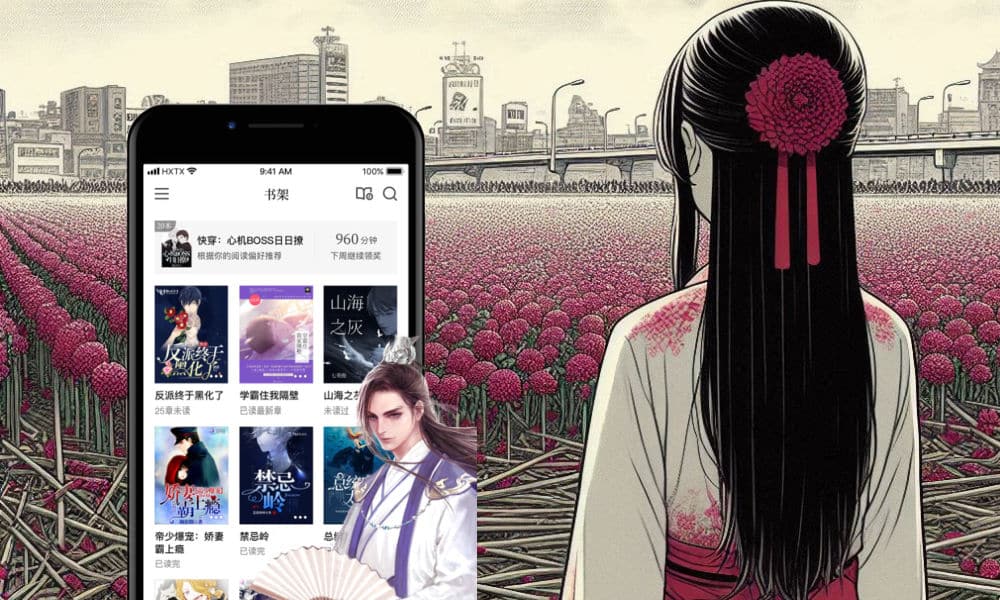
A recent crackdown on Chinese authors writing erotic webnovels has sparked increased online conversations about the Haitang Literature ‘Flower Market’ subculture, the challenges faced by prominent online smut writers, and the evolving regulations surrounding digital erotica in China. But how serious is the “crime” of writing explicit fiction China today?
You might have heard of haitang (海棠), the Chinese crabapple flower, but chances are you haven’t come across Haitang Literature City (海棠文学城)—and you’re not alone. Most people in China haven’t heard of it either. Haitang Literature City is a Taiwan-based, Chinese-language website dedicated primarily to female-oriented smut fiction, with numerous contributors from mainland China.
‘Smut fiction’ is a genre focused on explicit, sexual content and themes. Stories in this genre often emphasize the physical relationships between characters, with detailed erotic scenes. On Haitang Literature City, the most popular category is BL (Boys’ Love), which centers on romantic and erotic relationships between male characters and is written mainly for a female audience (read more here). The site also features a variety of heterosexual and lesbian stories, ranging from straightforwardly explicit to more unusual narratives. One consistent aspect across the site: most of the authors are women, writing primarily for a female readership.
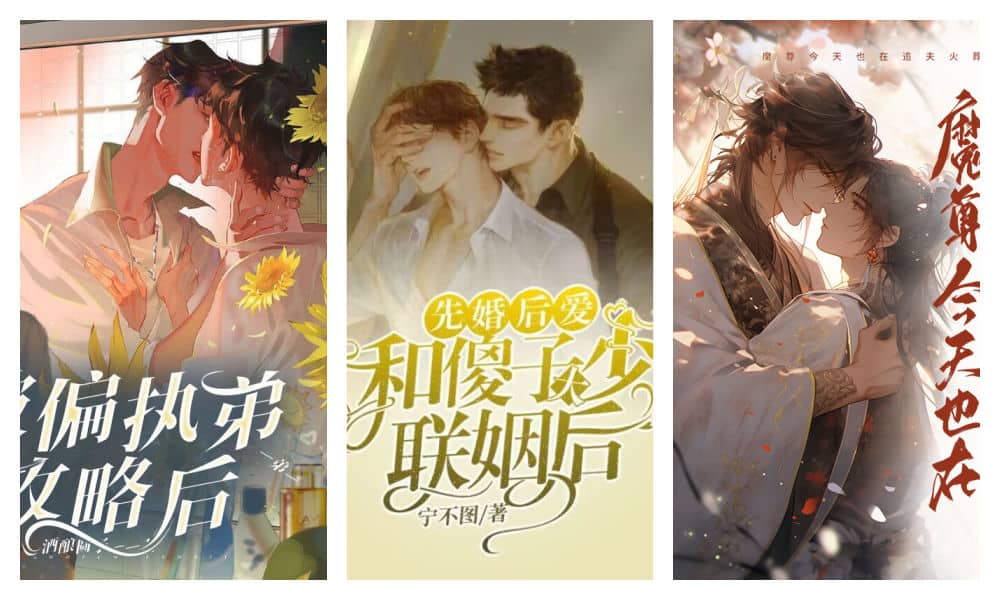
Example covers of online erotica
Haitang Literature City, known as the ‘Flower Market’ (花市) by its users, has stayed relatively underground within certain reading circles. Recently, however, a help post on Weibo has brought this hidden flower market into the spotlight, sparking considerable buzz online.
The post came from a user named “Rain Painted on a Sunny Day” (@晴天画的雨), the younger sister of the Haitang author known as “Yunjian” (云间, “Between the Clouds”). On October 16, she revealed that Yunjian had been detained since June 20 and is only allowed visits from her lawyer. The arrest notice she shared cites the charge: “suspected of producing and disseminating pornographic materials for profit” (“传播淫秽物品牟利罪”).
Yunjian, a prominent author on Haitang, has been writing for over a decade, producing tens of millions of words. Her detention not only forces her to forfeit all the royalties earned over the past ten years—now labeled “illicit earnings”—but also means she faces time in prison. While “Rain Painted on a Sunny Day” acknowledged her sister’s “offense” in the post, she explained that the resulting heavy fines have left their family deeply in debt, struggling to make ends meet. After the post went up, many of Yunjian’s readers expressed heartbreak over her situation and began donating to help.
Meanwhile, Haitang Literature City, once part of an underground culture, has been brought into the spotlight. “What is Haitang Literature City? Why are the authors on this site charged with the crime of producing and distributing obscene materials? Can someone explain? It feels like a completely different world—I truly have no idea about any of this,” one Weibo user wrote. Ironically, the crackdown on the site has led to greater awareness of it, with Chinese netizens now paying closer attention to the long-standing repression of erotic content authors and the ongoing struggles they face.
MONTHS OF CRACKDOWN
“They’re back to where they started, with nothing to their name”
The crackdown on authors of explicit content from Haitang Literature City began earlier in 2024. Blogger @LXC (@洛曐曟LXC), who has been documenting these events, described how police in Anhui Province launched a cross-provincial operation in June. On June 20, they arrested Haitang distributors along with several of its most successful authors. The Haitang site quickly shut down the next day, citing maintenance. The platform remained offline for several days.
During this shutdown, many authors aware of the arrests requested that their published work be hidden. As a result, Haitang locked down all site content, allowing authors to unblock their works only upon request.
Most of the first batch of arrested authors were released around June 20, with some warning others against writing on Haitang due to the high risks involved. However, this information circulated only within a small group, so few were aware of it. Authors who had earned larger sums from their writing were unable to arrange their release and remained in custody.
How did Haitang respond? Despite being aware of the arrests, the site apparently chose not to inform other authors of the risks, possibly prioritizing profits and readership. Blogger @LXC expressed her frustration with Haitang for misleading authors who were completely unaware of the situation, as well as others who had heard unverified rumors, into unlocking their columns for subscriptions. Seeing this, several smaller authors followed suit and unlocked their works as well.
From late July to early August, another group of authors was summoned by the police. Nearly all of this second batch of arrested authors were among those who had reapplied to unblock their columns after the site had reopened. LXC suggested that the site’s mismanagement and silence about the initial arrests were responsible for these authors getting into trouble.
Yunjian remains one of the authors detained since the initial crackdown in June and has yet to be released. Alongside her, many lesser-known authors are also struggling, with many relying on their writing on Haitang to make ends meet. Among them are stay-at-home moms, low-income students, and young women from rural areas who cannot find work. After all this upheaval, their situations have only worsened, and they are likely in even more dire straits than the more well-known authors.
“To me, it’s straightforward,” @LXC wrote: “These women earned money and, as a result, improved their previously poor lives. Now that money is being taken away from them, they’re back to where they started, with nothing to their name.”
A DECADE-LONG SURVIVAL GAME
“Censorship has reached absurd levels”
This isn’t the first time Chinese online smut writers have been targeted under the country’s strict censorship laws governing pornographic content. Since China launched its “Clean Internet Campaign” in 2014, many smut writers and online fiction platforms have faced consequences. In June 2015, author Ding Yi (丁一) received a suspended three-and-a-half-year sentence for her “explicit” novels on the platform Jinjiang Literature City (晋江文学城). Another writer, Mo Xiang Tong Xiu (墨香铜臭), known for her novel The Untamed and its TV adaptation, was sentenced to three years on “illegal publishing” charges. Although her case didn’t specifically involve “producing and disseminating pornographic materials for profit,” her arrest was still part of the broader anti-pornography campaign due to the erotic themes in her work.
Another well-known BL writer, Tian Yi (天一), faced an even harsher punishment. In 2018, she was sentenced to ten and a half years in prison for her novel Absolute Domination, which included erotic depictions of gay relationships and had earned her around 150,000 yuan ($21,000) from print sales. A young woman who assisted with typesetting was also implicated—she received a four-year sentence and a 10,000-yuan ($1,400) fine for her 3,100-yuan ($430) part-time payment.
While authors have faced relentless crackdowns, websites themselves have also struggled to survive. Jinjiang Literature City (晋江文学城)—a major online fiction platform known for hosting works with mature content—has been shut down and pressured into strict content checks, with some smaller sites shut down entirely. After multiple shutdowns and rounds of scrutiny, Jinjiang became almost hyper-vigilant, enforcing its self-censorship to an extreme. Now, any sensitive terms are automatically replaced with “口口,” as the site pushes to remove anything that might be seen as explicit by the authorities.
Many netizens have pointed out that the “content review guidelines” (link) of the Jinjiang platform are ironically hilarious: “Any depiction below the neck involving intimacy, body parts, sexual acts, sexual thoughts or fantasies, sexual organs, or excessive violence is considered explicit and thus prohibited,” it states. “Even if it’s less direct and more subtle, if the scenes are too lengthy or portray the entire process, they are also counted as explicit content.” Netizens joke that as long as the reviewers think you’re being suggestive, it’s a off limits—censorship has reached absurd levels.
However, readers’ demand for pornographic works hasn’t diminished at all in this decade-long, intense survival game. A quick search for names like “Tian Yi,” “Yunjian,” or “Mr. Shenhai” on Weibo still reveals hundreds, if not thousands, of people actively seeking and sharing resources for their novels.
THE PRICE OF EROTIC CONTENT IN CHINA
“There are people who commit crimes that truly harm others who don’t face such severe sentences”
How serious is the “crime” of writing online smut in China? While Yunjian has yet to be tried or sentenced, online discussions suggest she may face severe punishment. Her royalties over the past decade exceed 250,000 yuan ($35,000), potentially classifying her case as a particularly serious offense under Chinese law for “producing and disseminating pornographic materials for profit,” due to its perceived negative impact on youth and potential to corrupt social morals. This could result in fines of one to five times her earnings and likely a prison sentence of over ten years.
Recent cases indicate similar outcomes: on October 17, a Weibo account called @HuaiBeiLiXinWrongfulCase (@淮北李鑫冤案) posted a plea, revealing that author Li Xin (李鑫), who co-wrote the historical fantasy Six Dynasties with Luo Sen (罗森), was detained on the same charge after earning 300,000 yuan ($42,118) in royalties, which led to a ten-year prison sentence. As a similarly prominent author, Yunjian may face even harsher penalties and potentially an even longer prison term.
🌟 Attention!
For 11 years, What’s on Weibo has remained a 100% independent blog, fueled by our passion to write about China’s digital culture and online trends. Over a year ago, we introduced a soft paywall to ensure the sustainability of this platform. We’re grateful to all readers who’ve subscribed since 2022. Your support has been invaluable. But we need more subscribers to continue our work. If you appreciate our content and want to support independent coverage on digital China, please become a subscriber today. Your support keeps What’s on Weibo going strong!
Can writing smut really lead to such severe sentences? Some netizens have questioned this, speculating that the heavy penalties might actually be due to alleged money laundering or tax evasion. However, these theories were quickly dismissed: the royalties earned by Haitang authors come from legitimate payments made by actual readers, making money laundering unlikely. As for tax evasion, Haitang is a Taiwanese website and isn’t required to pay taxes to the mainland government. Even if mainland authors were guilty of tax evasion, they would likely just be required to pay back taxes rather than face prison time. Relying on these conspiracy theories to justify harsh penalties seems like a way to avoid addressing deeper issues within the current legal system.
Punishment can be actually be heavy based on various other factors. Some netizens have pointed out that the law states that making a profit of 250,000 yuan ($35,000) or achieving over 250,000 clicks is considered an particularly serious offense, potentially leading to a prison sentence of over ten years. But for online writers, especially prominent authors, reaching 250,000 clicks is relatively easy, which put them significantly at risk for for receiving heavy sentencing.
Moreover, the criteria for determining what actually constitutes ‘pornographic materials’ are quite vague. The family of the detained author Li Xin pointed out on Weibo that Article 367 of the Criminal Law specifies that literary and artistic works with artistic value, even if they contain erotic elements, should not be classified as pornographic. While Li Xin’s novels do feature erotic content, they also include a historical, cultural, military, economic, and social insights, leading to a variety of discussions among online readers.
“If this were truly an obscene novel overall, where would such rich discussions have come from?” The family wondered: “While the book does contain some unapologetic depictions of [sexual] relations, they serve only as parts of the story’s progression and character development. Could this limited content really lead to the moral corruption of ordinary people?”
The biggest controversy here centers on the stark contrast between the punishment for writing smut and for committing far more severe crimes. “Ten years is way too long; there are people who commit crimes that truly harm others who don’t face such severe sentences,” one netizen lamented on Weibo in response to Li Xin’s case.
This frustration resonates widely online. According to Chinese law, sentences for rape usually range from 3 to 10 years, with only exceptionally severe cases—such as those involving minors or resulting in serious injury or death—receiving more than ten years.
Angry netizens complain that recent court decisions on heinous crimes like sexual assault, voyeurism, and domestic violence often result in lighter sentences than what Yunjian is facing. Author @LuoSaiEr (@罗塞迩) highlighted a recent case of a man who recorded 75,000 videos for profit over five years and received only a one-year prison sentence. The stark contrast between the punishment for a smut writer and for actual sexual offenders, regardless of the legal complexities, is hard for the public to accept.
In China’s legal circles, there’s a growing belief that the laws around “producing and disseminating pornographic materials for profit” are seriously outdated, with penalties that often don’t align with the actual harm caused to society. Ever since the Tianyi case, legal experts have pointed out that the sentences don’t reflect the realities of today’s world.
Yet for ordinary people who now struggle to find erotic content, discussing legal reform feels almost pointless. With pop-up ads and QR codes linking to porn sites, hidden cameras in hotel rooms, and private videos being sold in group chats, it’s frustrating to see the law come down so hard on smut writers—who have no real victims—while many actual sex offenders walk free. As one netizen put it, this situation “shames the judiciary and makes it look disgraceful.”
Four months later, Yunjian remains in detention. With the support of donations from concerned netizens, her family has overcome their worst financial struggles and no longer accepts contributions. But for them—and for every writer and reader affected by this case—the fight for justice and their right to create still feels like a long, uncertain road ahead.
Update December 2024 (taken from our Newsletter):
We wanted to provide some updates about the erotic content writers we discussed previously, as their final sentencing results were announced recently. One of the authors convicted is Yunjian (云间), one of the more prominent writers of these sexually explicit web novels. As reported by Lianhe Zaobao, she was sentenced to 4 years and 6 months in prison for profiting from illegal activities. Some authors who were unable to gather funds to return illicit gains faced even longer sentences.
On Weibo, some people are outraged over the severity of the punishment, especially since Yunjian reportedly earned no more than 2 million RMB ($275,000) over several years of publishing. However, there are also some who defend the state’s crackdown on online “obscenities,” arguing that distributing such explicit content is a serious crime.
One commenter on Weibo wrote: “I don’t want to describe works filled with hope as ‘obscene materials’ (淫秽物品). I don’t want to define the hard-earned income from creative efforts as ‘illegal earnings’ (赃款). I don’t want to reduce the warm and joyful exchanges between readers and authors to the act of ‘distributing obscene materials’ (传播淫秽物品). This is the most degrading and evil form of humiliation.”
By Ruixin Zhang
Independently covering digital China for over a decade. Like what we do? Support us and get the story behind the hashtag by subscribing:
edited for clarity by Manya Koetse
Spotted a mistake or want to add something? Please let us know in comments below or email us. First-time commenters, please be patient – we will have to manually approve your comment before it appears.
©2024 Whatsonweibo. All rights reserved. Do not reproduce our content without permission – you can contact us at info@whatsonweibo.com.
Subscribe
What’s on Weibo is a reader-supported publication, run by Manya Koetse (@manyapan), offering independent analysis of social trends in China for over a decade. To receive new posts and support our work, consider becoming a paid subscriber.


A Very Short Guide to China’s Most Popular Designer Toys

The Next Labubu: What the Rise of Wakuku Tells Us About China’s Collectible Toy Wave

Jiehun Huazhai (结婚化债): Getting Married to Pay Off Debts

Yearnings, Dreamcore, and the Rise of AI Nostalgia in China

Beauty Influencer Du Meizhu Accused of Scamming Fan Out of $27K

China Is Not Censoring Its Social Media to Please the West

Inside the Labubu Craze and the Globalization of Chinese Designer Toys

China Reacts: 3 Trending Hashtags Shaping the Tariff War Narrative

China Trending Week 15/16: Gu Ming Viral Collab, Maozi & Meigui Fallout, Datong Post-Engagement Rape Case

Chinese New Nickname for Trump Mixes Fairy Tales with Tariff War

No Quiet Qingming: From High-Tech Tomb-Sweeping to IShowSpeed & the Seven China Streams

Understanding the Dr. Xiao Medical Scandal

From Trade Crisis to Patriotic Push: Chinese Online Reactions to Trump’s Tariffs

Behind the Mysterious Death of Chinese Internet Celebrity Cat Wukong

Do You Know Who Li Gang Is? Anti-Corruption Official Arrested for Corruption
Get in touch
Would you like to become a contributor, or do you have any tips or suggestions? Get in touch here!
Popular Reads
-

 China Media12 months ago
China Media12 months agoA Triumph for “Comrade Trump”: Chinese Social Media Reactions to Trump Rally Shooting
-

 China Society9 months ago
China Society9 months agoDeath of Chinese Female Motorcycle Influencer ‘Shigao ProMax’ Sparks Debate on Risky Rides for Online Attention
-

 China World11 months ago
China World11 months agoChina at Paris 2024 Olympics Trend File: Medals and Moments on Chinese Social Media
-

 China Memes & Viral11 months ago
China Memes & Viral11 months agoTeam China’s 10 Most Meme-Worthy Moments at the 2024 Paris Olympics




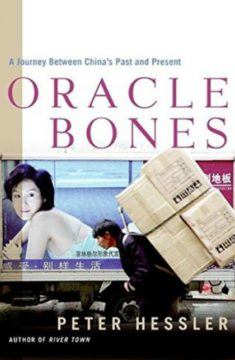
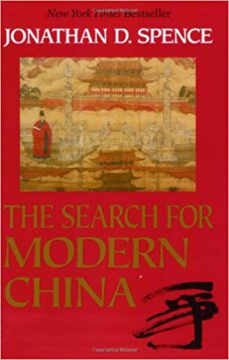
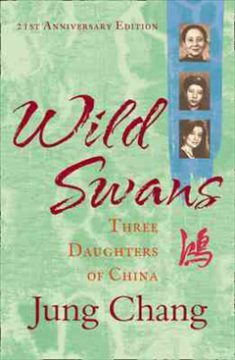
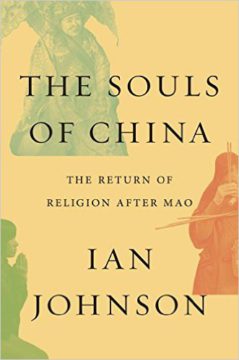
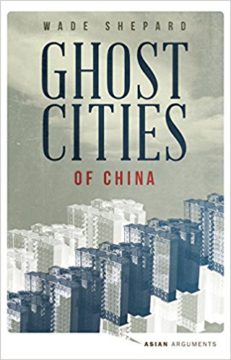
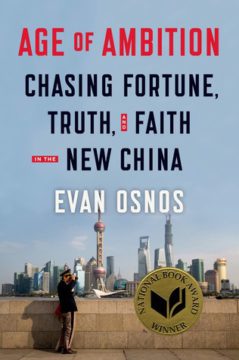
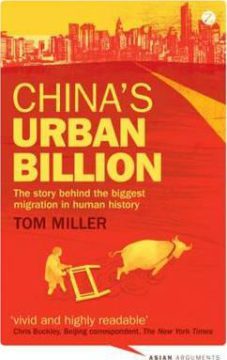

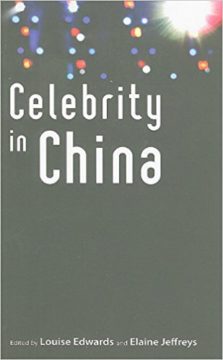

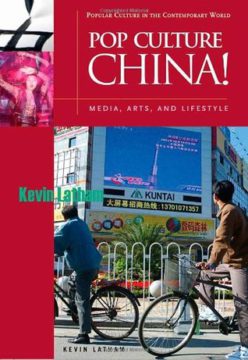

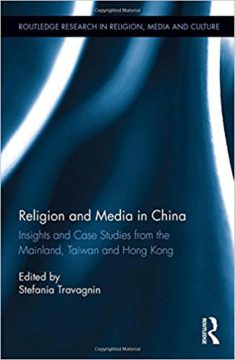
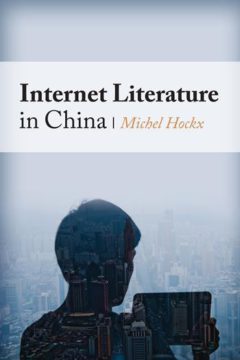
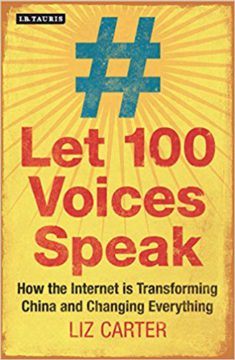
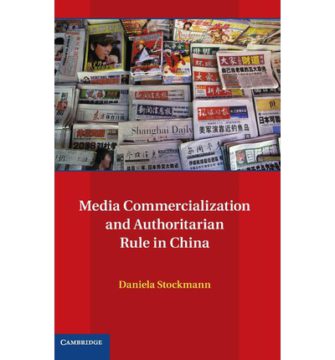

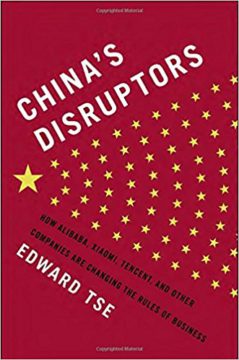

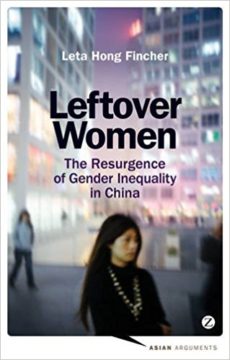

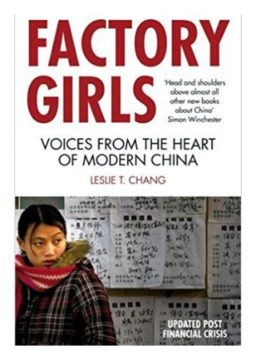
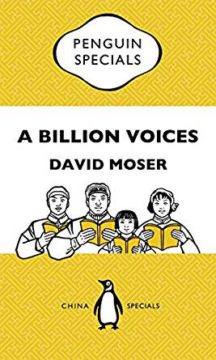



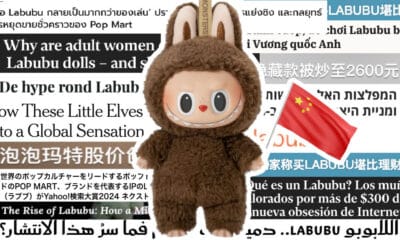
Bruce Moon
April 20, 2018 at 2:58 am
I would add Ian Johnson’s Souls of China and Frank Dikotter’s The Cultural Revolution: A People’s Hiatory and The Tragedy of Liberation.
Mike Cairnduff
April 20, 2018 at 11:51 am
Wild Swans is still my favourite! An old classic 🙂
Ed Sander
April 20, 2018 at 10:08 pm
Some more suggestions:
On Chinese young people:
Wish Lanterns – Alec Ash (probably my favourite of the last couple of years)
China’s Millennials – EricFish (I liked this better than Oracle Bones)
Business:
China’s Super Consumers – Michael Zakkour and Savio Chan
All Eyes East: Lessons from the Front Lines of Marketing to China’s Youth – Mary Bergstrom
Alibaba’s World – Porter Erisman
Sex, Corruption etc:
Red Lights – Zheng Tian Tian
Anxious Wealth – John Osburg
Death in the Lucky Holiday Hotel – in Ho and Wen’guang Huang (on the Bo Xilai scandal)
Various stories about China:
From The Dragon’s Mouth – Ana Fuentes
China Road – Rob Gifford
Out of Moa’s Shadow – Philip P. Pan
Environment:
When A Billion Chinese Jump – Jonathan Watts
LH
April 22, 2018 at 8:14 am
Adding another vote in favor of Alec Ash’s Wish Lanterns, which along with Evan Osnos’ Age of Ambition is my favorite book on Modern China.
cathy
August 30, 2018 at 9:46 pm
In this Millennium right now cheating is becoming so common and normal, I don’t seem to understand why we as a people have to live our life’s that way. So much heartbreaks, you meet someone you fall in love with,which was not even genuine in the first instance, like it’s a normal way of life now. People find it hard to stay committed again. It’s becoming a thing. Getting information & data you need is not a big deal. Sometimes the truth needs to be unveiled by whatsoever means necessary. I’d suggest : SPYLORDHACK {@}- G-m-a-i-……. c-o-m or whatsapp or call……………..+1 (484) 964 3748